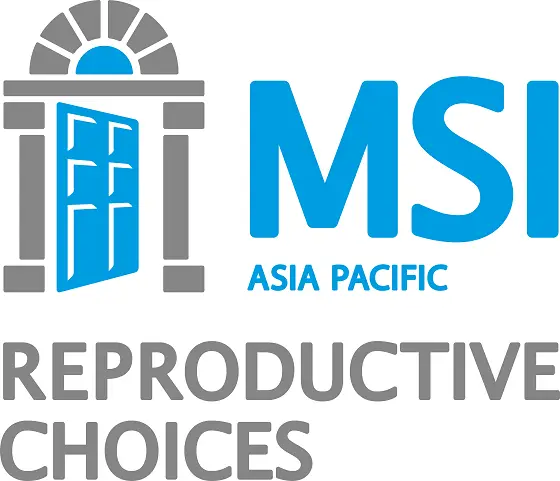More than 700 million people across the Asia and Pacific regions are estimated to have disabilities.
We know that people with disabilities face complex challenges including discrimination in education, employment, justice, transport and healthcare. In many parts of the world, these challenges are compounded by poverty and a lack of resources.
Women and girls also face additional barriers compared to men with disabilities, including around their safety and autonomy. They’re especially vulnerable to sexual and gender-based violence, which can have devastating impacts throughout their lives.
Access to sexual and reproductive healthcare is a human right. It supports people to pursue their goals, maintain security throughout periods of social and climate upheaval, to build positive relationships, and to fully participate in their communities.
But for women and girls with disabilities, this isn’t always within reach: a lack of respect, resources, information, decision-making power and spaces that consider their needs can leave them without reproductive choice. We’re working to change this.
Partnering with experts
When we talk about disability inclusion, we’re talking about removing the barriers that make it harder for people with disabilities to live meaningful and independent lives – lives as defined by them, not for them.
Often when people hear the word ‘expert’, they tend to think of people working in highly specialised research fields. But ‘experts’ should always include people with lived experience, who are best placed to develop solutions to complex challenges they encounter in their everyday lives.
We prioritise working in partnership with Organisations of People with Disabilities — grassroots organisations run by people with disabilities, for people with disabilities. Wherever possible, this helps us to understand what their communities need and how we can best deliver it.
With funding from the Australian Department of Foreign Affairs and Trade (DFAT) under the RESPOND program, we partner with Organisations of People with Disabilities across the Asia and Pacific regions including in Cambodia, Nepal, Papua New Guinea, Timor-Leste, Myanmar, Vietnam and Pakistan, to ensure that women and girls with disabilities are receiving essential sexual and reproductive healthcare. Here are some examples of our work:
Cambodia
MSI in Cambodia partnered with a leading disability advocacy group, Voice of People with Disability, to present a radio talk show for World Contraception Day. Titled ‘Family Planning and Women’s Empowerment’, the show raised awareness of sexual and reproductive health and family planning services for people with disabilities.
MSI is also partnering with the Cambodian Disabled People’s Organisation to coordinate transport support and fee waivers for women and girls with disabilities accessing MSI’s services. MSI Cambodia staff also received training in disability awareness and inclusion.

Vietnam
In Vietnam, the MSI team worked with local health authorities to offer free mobile services for people with disabilities in rural areas. In Hanoi, MSI worked in partnership with the Hanoi Association of People with Disabilities to provide a free package of sexual and reproductive health care services to women with disabilities through the Dr. Marie clinics.

Myanmar
The MSI Myanmar team created social media content on disability inclusion and on sexual and reproductive health awareness information for people with disabilities, including videos with sign language interpretation. MSI Myanmar used signed language interpreters recommended by Organisations for People with Disabilities that they partner with, such as Shwe Min Thar Foundation and the Myanmar Independant Living Initiatives.

Leakena's story
Leakena* is a young woman in Cambodia who generously shared her experiences of accessing healthcare.
“My name is Leakena. I’m 25 years old and I was born with a disability. I have a speech impediment, and my hands and feet are bent. I tremble when I walk, and I eat using my feet. I have no relatives to support me.”
Leakena has no regular income and is supported by her community. She currently lives for free in the spare room of a generous homeowner.
She recently had a challenging experience, which left her in a difficult position.
“I met a man, and we had a ceremony to be recognised by everyone as husband and wife. After two months, he left me.”
Leakena was two months pregnant and unwell. When her husband left her, she was at a loss for how to proceed.
“I knew I couldn’t take care of a child, because I’m relying on other people’s kindness in giving me food.”
After taking the brave step of speaking to community authorities and contacting an organisation that works with women, she was given 100,000 Cambodian riel (37 Australian dollars) to access a safe abortion.
The organisation took her to an MSI clinic in Siem Reap, which provided her with a safe and empathetic service even though she couldn’t pay the full fee.
“I am so grateful for the MSI Clinic for providing services without any discrimination to women with disabilities like me because without MSI’s help, I don’t know how I would survive.”
MSI is proud to support women with disabilities like Leakena, who deserve to have reproductive choice over their own bodies and lives.
*Name has been changed for privacy reasons.

